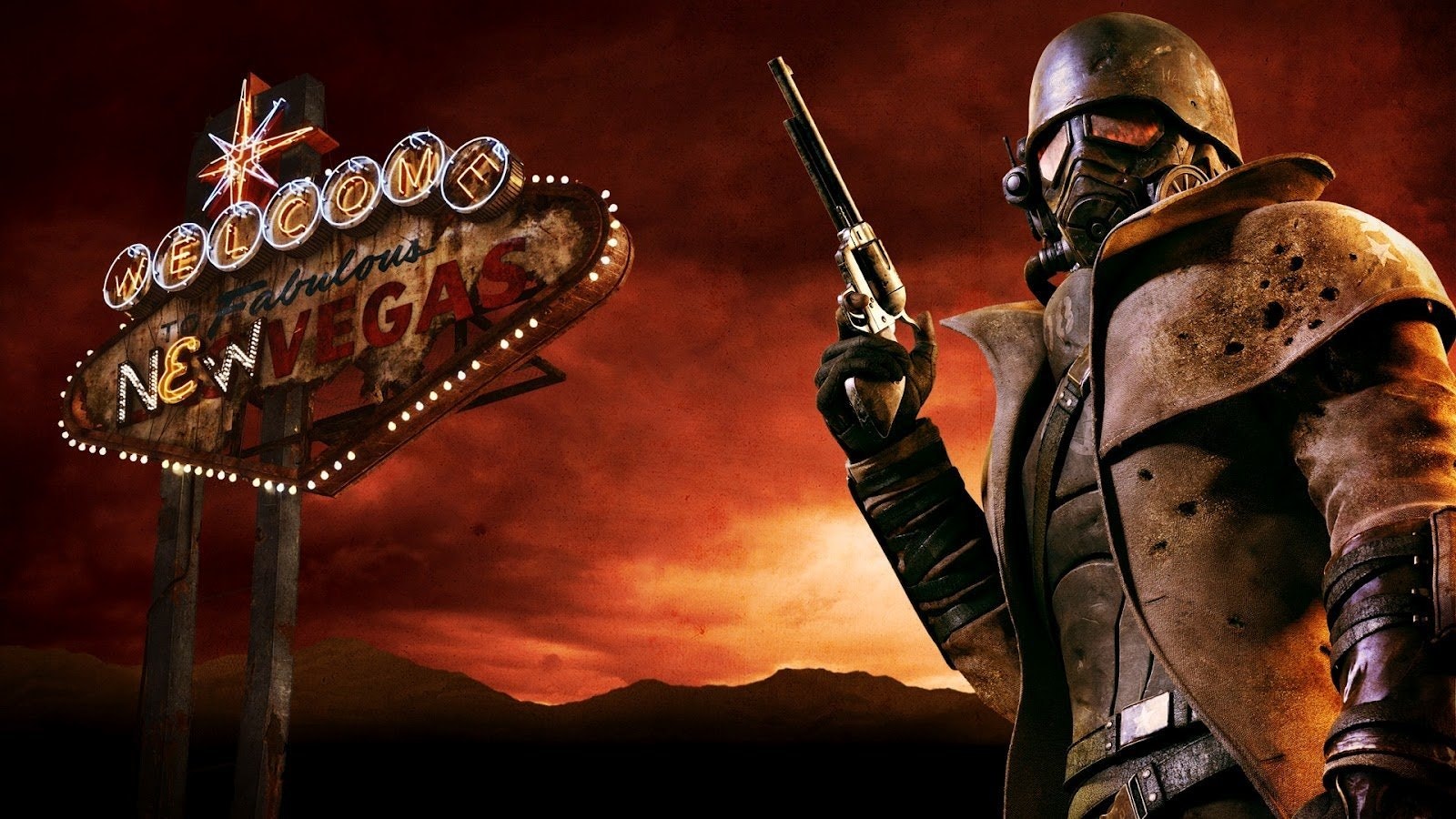
The late Matthew Perry was gifted at lending human depth to what could be stock characters. His most famous role, as acerbic Chandler Bing in the sitcom Friends, is a prime example of this. Despite ten years of being in an ensemble in romantic comedy comfort food, Perry’s Chandler remained oddly grounded and is perhaps the closest thing that the series has to an audience surrogate: Funny, but rough around the edges. Failable, but trying his best. Constantly watchable, but nevertheless imperfect. It’s a talent that Perry would also bring to his one and only role as a video game voice actor, Benny in Fallout: New Vegas.

Now, it’s pretty hard to find two pieces of media more different than Friends and Fallout: New Vegas. One is set in the world of twenty-something relationships, coffee shops, and unaffordable Manhattan apartments. The other is set in the Mojave Wasteland in the year 2281, more than two centuries after a devastating nuclear conflict. (The closest thing New Vegas has to “I’ll be there for you…” is the Deathclaw that, once it spots you, will constantly try to tear your head off.
One thing both stories have in, common, however, is plenty of background characters. But while the various extras that filled Central Perk in Friends never stood much of a chance, the only thing stopping you from engaging the with supporting characters in Fallout: New Vegas is, well, you.
Fallout games thrive on player choices. You create your character and send them off into a post-apocalyptic nightmare world to make decisions and change society as we know it. However, this means that, depending on what you decide to do, many non-player characters can either be explored or left as one-note taskgivers. Whatever their full range amounts to is up to you and, at times, the denizens of New Vegas can feel less like a cast of three-dimensional characters and more like a parade of weirdos.

Benny is certainly a weirdo. With his checkered jacket and mid-century gambler speak, he seems destined to become little more than meme fodder. But the way the story constructs his character after the opening cutscene (in which he shoots you in the head and leaves you for dead) makes reuniting with him feel extremely impactful. From other characters, you learn about Benny’s conniving nature and get hints at his need for power, something more important to him than any allegiance or friendship. Though he seems to be under the thumb of the mysterious Mr. House in the titular New Vegas, Benny’s only real boss is Benny.
So when you meet Benny at The Tops casino, you already feel like you know what he’s capable of, giving his quirky dialogue an edge of malice. It doesn’t hurt that Perry plays every line completely straight, no matter what Vegas colloquialism he’s saddled with. It might sound funny at first, but it’s ultimately extremely endearing — even though it’s being said by a narcissistic murderer.
As with most characters in the game, you can try to murder him pretty much immediately, but because Benny is already so fully formed, it’s easier to let him live and just chat with him. You want to dive deeper into the kind of guy that exists on pure opportunism and would leave you for dead and yet says things like, “Let’s keep this in the groove, hey. Smooth moves, like smooth little babies.”
Benny is an association that rewards patience (a lot of your early conversations with him are spent attempting to match his instinctual wheeling and dealing) and then trying to keep him alive until the end rather than rushing to push the narrative forward. If you keep him unexploded for long enough to see him captured by Caesar’s Legion, you’re given the option to have him executed in a way that you prefer. Here, Benny’s mask of coldness slips and he devolves into pleading, ridiculous anger — if you decide to have him crucified, his main concern is that all of Caesar’s guards and goons will point and laugh at him. It matters little to the overall story what you pick in this case, but it says a ton about Benny’s character.
Fittingly, Benny’s final moments exist outside of Fallout: New Vegas’ story. If you set him free, he’ll leave the Legion’s compound and set off into the desert, never to be seen again. Even his partnership with you, the person who saved him from a painful, bloody demise, isn’t worth maintaining if it means getting the chance to go scheme elsewhere. With a less fleshed-out character, this would be a frustrating end to the relationship, but it’s not hard to imagine Benny finding himself in trouble wherever he goes due to his incessant desire to be on top.
Benny isn’t the only great NPC in the Fallout series (some other favorites include Fallout 3’s Vance, a man who really wants you to pretend to be a vampire with him; and Arthur Maxson, who evolves over multiple games into being a zealot leader of the Brotherhood of Steel) but Benny remains beloved, not because of what he provides to the plot, but because of how fun he is as a character. Simultaneously cold and ridiculous, he proves that the apocalypse can take away a lot of things…except your personality.







